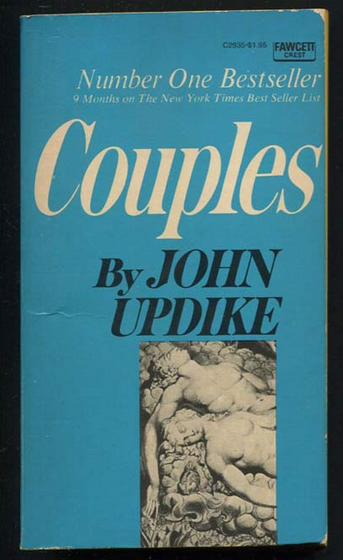The average writer isn’t typically mentioned in an article about pharmaceuticals, but of course Updike isn’t typical. Neither was Couples, his 1968 novel that explored the social and sexual consequences of the birth control pill—a free-love era medical advancement that nonetheless required a doctor’s prescription.
Now a birth control pill is being marketed as an over-the-counter drug, and a Flagler Live article about it uses Updike’s novel as an illustration, along with this caption:
“Welcome, she said, to the post-pill paradise, a light-hearted blasphemy that immensely relieved him,” Piet Hanema, the central character in John Updike’s Couples narrates as he is about to begin his affair with Georgene early in the 1968 novel that made Updike, and the pill, household items. (The italics are in the original text.) Updike loved the post-pill paradise phrase so much, he used it twice more and referred to it in subsequent interviews. But the true paradise may only be beginning.”
That this quote and the cover of Couples is employed in an article that’s not about the socio-sexual ramifications, but rather “the move toward over-the-counter birth control as an important step toward accessible and equitable reproductive health care for all Americans,” illustrates how that well-turned phrase—”post-pill paradise”—still captures the imagination.

